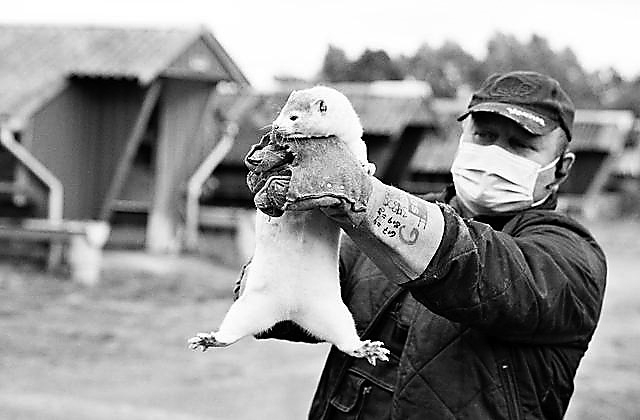
HUMANS, ferrets, cats, civets and dogs are the animals most susceptible to infection with the new coronavirus, researchers say. The analysis of 10 species also found that ducks, rats, mice, pigs and chickens were less or not susceptible to SARS-CoV-2 infection. “Knowing which animals are susceptible to SARS-CoV-2 helps us prevent building up animal reservoirs from which the coronavirus can re-emerge at a later date,” said the study’s senior author, Luis Serrano. “Our findings offer a clue for why minks — which are closely related to the ferret — are being infected by the disease, which is probably made worse by their packed living conditions and close contact with human workers,” he added. Serrano is director of the Center for Genomic Regulation in Barcelona, Spain. “Though we also find a potential susceptibility to infection by cats, they don’t co-exist with humans in the same conditions as other animals, which may explain why so far there are no known cases of people being infected by their pets,” Serrano said in a news release. The study was published online recently in the journal PLOS Computational Biology. For their study, the researchers used computer modeling to assess how the new coronavirus uses spike proteins on its surface to invade the cells of different animals. The main entry point on a cell’s surface is the ACE2 receptor, which binds with the spike protein. People have a wide range of ACE2 variants, as do different species. Variants of the ACE2 receptor in humans, followed by ferrets, cats, dogs and civets, have the strongest binding to the spike protein on the new coronavirus. Mice, rats, chicken and ducks have poor binding, according to the researchers. The investigators also found that different human variants of ACE2 may affect whether people are more likely to have severe COVID-19 symptoms. “We have identified mutations on the S-protein that dramatically reduces the capacity of SARS-CoV-2 to enter into the cell, protecting the host from catching COVID-19,” said study first author Javier Delgado, who is also a researcher at the center. “We are now engineering mini-proteins from the human ACE2 protein to ‘distract’ the attention of the virus from entering cells and block an infection,” he said. “Should new mutations of the viral spike protein arise, we could engineer new variants to block them.” Learning more about different species’ susceptibility to SARS-CoV-2 infection can help guide public health measures, according to the researchers. (SD-Agencies) | 
